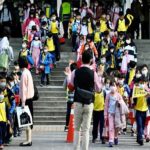In a bid to improve infrastructural development at the Free Trade Zones in Nigeria, the Nigeria Export Processing Zones Authority (NEPZA) is collaborating with the World Bank and the International Financial Co-operation (IFC) in order to build the needed infrastructure that will bring development at the country’s industrial centres.
Speaking at the weekend in Abuja while receiving World Band and IFC delegation, the Acting Managing Director of NEPZA, Mr Bitrus Dawuk stated that, the trade zones in the country had huge potentials to generate direct foreign investment for Nigeria in billions of dollars.
Though the MD lamented lack of legislative backing that permits the Agency to draw in the necessary investment into the zones, noting that the National Assembly was in the process amending the Act that established NEPZA as a means of opening up the sector for development.
Dawuk noted that “NEPZA is ever ready to work with the World Bank and the IFC in giving Nigeria a world-class free zones as there are already measures in place to review the outdated regulations of NEPZA to make it more favourable for Foreign Investors to come in and invest in the country” he stated.
On his part, the leader of the delegation, Mr Feyi Boroffice said the visit was aimed at strengthening the relationship with NEPZA by providing an enabling environment to attract more foreign investors into the country by building anchor projects that would encourage the establishment of industries such as the Dangote Refinery and Petrochemical plant.
ALSO READ: Coronavirus: WHO advocates use of universally applicable actions
Boroffice explained the World Bank which has the mandate of providing funding or advice for the development of countries, “do so with the help of the four arms of the organization. International Financial Co-operation (IFC) which finances private companies, International Development Association (IDA) which provides assurance on political risks for foreign investors and the International Centre for Settlement of Investment Disputes (ICSID) which provides arbitration for investment disputes.
“The World Bank Group is the multilateral development institution so our aim is to go to all the developing countries in the world to see where we can provide funding or advice to help with development.”
He continued that “out of the two hundred and ten (210) or two hundred and twenty countries (220) in the world, one hundred and fifty (150) of them are developing countries we need to go there and see how we can help with development. So the typical development home treat is how we can create more jobs, how can we increase women participation in the economic process, how can we increase money and standard investment, how do we increase exports.”
He revealed that the World Bank has been part of the Dangote Refinery and Fertilizer plant project in Ibeju Lekki, suggesting the need for replication of such a massive project across other zones in the Federation.






